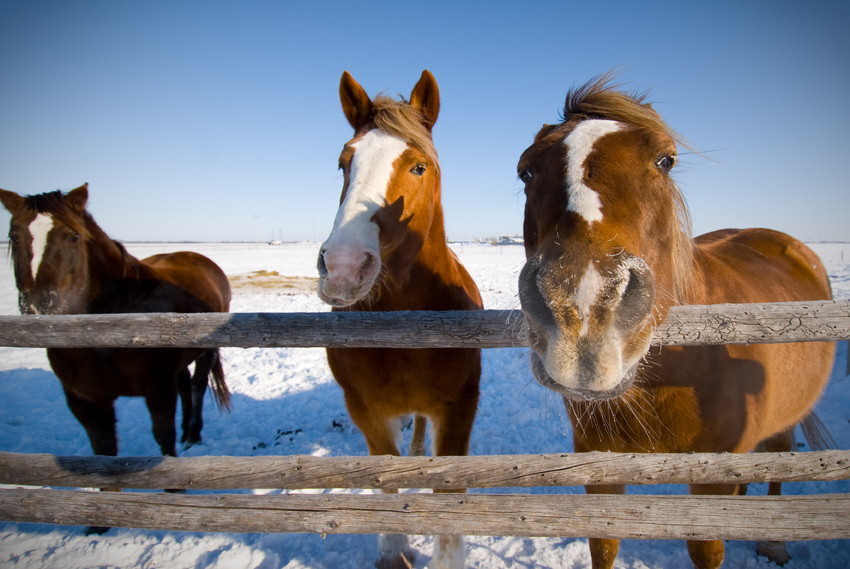Horsing around good for the soul
Campus therapy group looks towards horse therapy to help with issues
A therapy group based out of the University of Winnipeg is hoping interaction with horses can help at-risk youth.
The Aurora Family Therapy Centre is implementing an equine-assisted therapy program called Horses Helping People. The program focuses on at-risk youth and their families, with the goal of increasing bonding within the family unit.
“Horses are highly social and intuitive animals,” said Linda Cantelon, director of therapy for the Aurora Family Therapy Centre. “They pick up what is going on within people.”
The Centre will lease some horses and a riding arena for the program and already has a couple of grants to help, including a $38,000 operating grant from the Winnipeg Foundation. The Centre is currently taking referrals for the program, which involves no riding.
Cantelon said their program has helped with bullies as well their victims.
“They learn about how their behaviour affects other people through their interaction with the horses,” Cantelon said.
Equine, or horse-assisted, therapy is different for everyone, said Jacqueline Sutton. Sutton runs the Windhorse Centre for equine therapy on Salt Spring Island in British Columbia.
“It is so organic and depends on individual interaction,” Sutton said, stressing that no riding takes place.
“We (humans) are clever at avoiding what we really want to address,” Sutton said. “Horses have the ability to get to it quickly.”
“ Horses allow people to understand and learn about their energy and focus on their intuition.
Candice Kontzi, Roycan Country Haven
Candice Kontzi, who runs some equine-assisted personal development programs out of the Roycan Country Haven in Portage la Prairie, has been working with horses for 35 years, many of which were spent doing equine therapy.
But until a local therapist approached her a few years ago to work with one of his clients, she had not heard of the term equine therapy.
“I just didn’t know it has a name,” she said.
Kontzi said there is definitely a need for equine therapy, judging by the number of clients coming back for more.
“We have had cancer patients come back more than once,” Kontzi said.
Kontzi said the horses are not specifically trained for such programs. Instead, therapy relies on a match between the horse’s personality and the client.
“The horse will mirror individual emotions,” Kontzi said. “Horses allow people to understand and learn about their energy and focus on their intuition.”
Other horse therapy programs involve physical horseback riding.
Such is the case with the Manitoba Riding for the Disabled Association Inc., which has been around for over 30 years.
Peter Manastyrsky, the executive director, works with kids with disabilities between the ages of six and 12, who usually get referred to the program through a school therapist or the Children’s Hospital.
Manastyrsky said the program has physical and mental benefits, such as balance, co-ordination and muscle strengthening.
“We deal with kids who don’t normally do any physical activity,” Manastyrsky said. “This is their hockey.”
Despite the benefits of equine therapy, Kontzi has a word of caution for people wishing to enter the field.
“You have to get the right horses as well as a good support team.”
Published in Volume 63, Number 22 of The Uniter (March 5, 2009)








